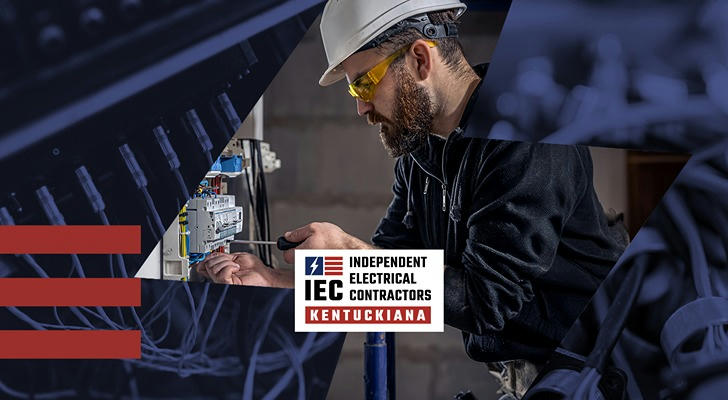Government Support – Learn and Earn – The Best Electrician Training Course for Beginners!
“America needs more electricians and plumbers.” A sentence from the White House press secretary resonated with the society. Practical skills are being re-emphasized, especially in the stable electrician industry. This article will show you how to learn and earn with the help of government-supported projects, and become a certified electrician from scratch.

Ⅰ. Why do more and more people choose to learn electricians?
According to the forecast of the U.S. Bureau of Labor Statistics (BLS), electrician jobs will continue to grow in the next decade. With the advancement of electric vehicles, green buildings and infrastructure upgrades, electricians are becoming indispensable technical talents in society. To meet this demand, the national non-profit organization IEC (Independent Electrical Contractors) has joined hands with more than 3,600 employers across the United States to open a systematic apprenticeship course to provide zero-based students with a clear growth path and stable employment opportunities.
Ⅱ. Learn and Earn: A Realistic and Stable Growth Path
Different from the traditional "pay tuition first and then get a job" model, IEC provides a practical path of "learning and earning". Every apprentice who is accepted starts paid work on the first day of training, and their salary increases year by year as their skills improve:
| Academic Year | Salary Ratio (relative to skilled workers) | Skill Focus |
|---|---|---|
| First Year | 50–60% | Basic Wiring, Safety Code, Residential Installation |
| Second Year | 60–70% | Commercial Wiring, Conduit Bending, Electrical Drawing Identification |
| Third Year | 70–85% | System Upgrade, Testing and Debugging |
| Fourth Year | 85–95% | Troubleshooting, Motor Control, Site Management |
This type of “learning by doing” training is particularly suitable for inexperienced novices, employed people seeking to change careers, and high school graduates or veterans who want to find employment quickly.
III. Where can I find government-supported electrician courses?
State vocational colleges and technical schools: such as California Community College System (CCC), Texas Technical College (TSTC);
Employment Development Center: such as CareerOneStop, WorkSource, American Job Centers;
Workforce Development Program (WIOA): Provides tuition assistance and employment services for low-income people, unemployed people, etc.;
Veterans-only programs: such as Veterans Affairs skills training programs;
Non-profit cooperation programs: such as Goodwill, Urban League, etc.
Many IEC chapters themselves have also received federal or state funding, and apprentices can obtain detailed scholarships, job opportunities and training guidance services through local chapters when applying.

Ⅳ. What do electrician courses teach? Comprehensive coverage from zero foundation to on-the-job skills
Basic electrical knowledge: Learn basic concepts such as circuit principles, voltage, current, and resistance;
National Electrical Code (NEC): Master wiring standards and construction specifications that comply with regulations;
Tool and equipment use: Correctly use various electrical tools and testing equipment;
Building electrical installation: From residential wiring to power system deployment for commercial projects;
Safety operation specifications: Learn OSHA standards, PPE use, and on-site emergency response;
Practical training project operation: Complete circuit installation and troubleshooting in simulated or real construction sites.
In the IEC apprenticeship program, the course is extended to a complete 4-year system training, combining paid on-site training and professional classroom teaching. After graduation, you can also obtain a nationally recognized electrician qualification certificate!
V. The growth path from veteran to project supervisor
Mike is a veteran from Michigan. After retiring, he was confused for a while. With the recommendation of the local Veterans Affairs Department, he joined the IEC apprenticeship course.
At first, he started by learning the most basic electrical principles and wiring, receiving systematic training in the classroom while participating in real projects on the construction site. As his experience accumulated, his income increased year by year. At the end of the fourth year, he had become a construction team leader and planned to obtain project manager certification in the future.
Mike said: "This is not only a job, but also a career that can see growth. The IEC training helped me find my direction and earned respect with my hands and skills."
VI. How to apply for an electrician course?
1️⃣ Visit the IEC official website, find your local chapter, learn about apprenticeship program details and submit an application;
2️⃣ Contact your local vocational training center or state community college to obtain course information and registration procedures;
3️⃣ Pay attention to various employment development centers (such as American Job Centers), which will provide government-supported training resources;applicants are usually over 18 years old.
4️⃣ Veterans can consult Veterans Affairs to learn about exclusive vocational training programs and application procedures.
Electrician is not only a craft, but also a stable and promising career path. If you are looking for a practical and reliable career direction, now is a good time to enter the electrical industry.
